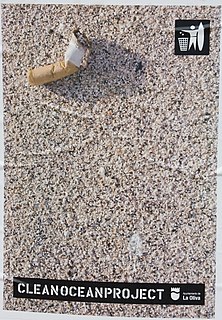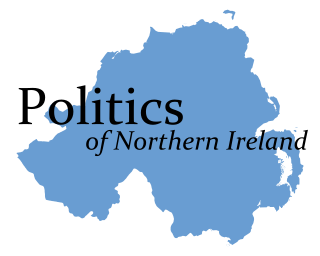Related Research Articles

The Countryside Agency was a statutory body set up in England in 1999 with the task of improving the quality of the rural environment and the lives of those living in it. The Agency was formed by merging the Countryside Commission and the Rural Development Commission. Its powers were inherited from those bodies.

A Site of Special Scientific Interest (SSSI) in Great Britain or an Area of Special Scientific Interest (ASSI) in the Isle of Man and Northern Ireland is a conservation designation denoting a protected area in the United Kingdom and Isle of Man. SSSI/ASSIs are the basic building block of site-based nature conservation legislation and most other legal nature/geological conservation designations in the United Kingdom are based upon them, including national nature reserves, Ramsar sites, Special Protection Areas, and Special Areas of Conservation. The acronym "SSSI" is often pronounced "triple-S I".
English Nature was the United Kingdom government agency that promoted the conservation of wildlife, geology and wild places throughout England between 1990 and 2006. It was a non-departmental public body funded by the Department for Environment, Food and Rural Affairs (DEFRA) and gave statutory advice, grants and issued licences.
This page gives an overview of the complex structure of environmental and cultural conservation in the United Kingdom.
The Northern Ireland Environment Agency (NIEA) is an executive agency within the Department of Agriculture, Environment and Rural Affairs (DAERA). It is responsible for conservation of Northern Ireland's environment and natural heritage.

An Area of Outstanding Natural Beauty (AONB) is an area of countryside in England, Wales or Northern Ireland that has been designated for conservation due to its significant landscape value. Areas are designated in recognition of their national importance by the relevant public body: Natural England, Natural Resources Wales, or the Northern Ireland Environment Agency. In place of AONB, Scotland uses the similar national scenic area (NSA) designation. Areas of Outstanding Natural Beauty enjoy levels of protection from development similar to those of UK national parks, but unlike national parks the responsible bodies do not have their own planning powers. They also differ from national parks in their more limited opportunities for extensive outdoor recreation.

The Department for Environment, Food and Rural Affairs (DEFRA) is the government department responsible for environmental protection, food production and standards, agriculture, fisheries and rural communities in the United Kingdom of Great Britain and Northern Ireland. Concordats set out agreed frameworks for co operation, between it and the Scottish Government, Welsh Government and Northern Ireland Executive, which have devolved responsibilities for these matters in their respective nations.

Environmental protection is the practice of protecting the natural environment by individuals, organizations and governments. Its objectives are to conserve natural resources and the existing natural environment and, where possible, to repair damage and reverse trends.

The National Parks and Access to the Countryside Act 1949 is an Act of the Parliament of the United Kingdom which created the National Parks Commission which later became the Countryside Commission and then the Countryside Agency, which became Natural England when it merged with English Nature in 2006. The Act provided the framework for the creation of National Parks and Areas of Outstanding Natural Beauty in England and Wales, and also addressed public rights of way and access to open land. The Act was passed in 1949 with all-party support, as part of the reconstruction of the UK by the Labour government after World War II.
Natural England is a non-departmental public body in the United Kingdom sponsored by the Department for Environment, Food and Rural Affairs. It is responsible for ensuring that England's natural environment, including its land, flora and fauna, freshwater and marine environments, geology and soils, are protected and improved. It also has a responsibility to help people enjoy, understand and access the natural environment.

The Rural Payments Agency (RPA) is an executive agency of the UK Department for Environment, Food and Rural Affairs (Defra). The RPA delivers the European Union (EU) Common Agricultural Policy (CAP) payments to farmers and traders in England, paying out over £2 billion in subsidies each year. The Agency managing more than 40 schemes, the largest of which the Basic Payment Scheme (BPS) paying more than £1.5 billion to around 105,000 claimants a year.
Site of Nature Conservation Interest (SNCI), Site of Importance for Nature Conservation (SINC) and regionally important geological site (RIGS) are designations used by local authorities in the United Kingdom for sites of substantive local nature conservation and geological value. The Department for Environment, Food and Rural Affairs has recommended the generic term 'local site', which is divided into 'local wildlife site' and 'local geological site'.

The Great Green Wall or Great Green Wall of the Sahara and the Sahel is Africa's flagship initiative to combat the increasing desertification. Led by the African Union, the initiative aims to transform the lives of millions of people by creating a mosaic of green and productive landscapes across North Africa.

The Department of Agriculture, Environment and Rural Affairs (DAERA) is a government department in the Northern Ireland Executive, the devolved administration for Northern Ireland. The minister with overall responsibility for the department is the Minister of Agriculture, Environment and Rural Affairs. The department was called the Department of Agriculture and Rural Development between 1999 and 2016 and was previously known as the Department of Agriculture for Northern Ireland or the Ministry of Agriculture. The department's Permanent Secretary is Denis McMahon

Landscape-scale conservation is a holistic approach to landscape management, aiming to reconcile the competing objectives of nature conservation and economic activities across a given landscape. Landscape-scale conservation may sometimes be attempted because of climate change. It can be seen as an alternative to site based conservation.
Following the 2010 United Kingdom general election, the UK Government announced plans to curb public spending through the abolition of a large number of quasi-autonomous non-governmental organisations (quangos). On 23 May 2010, Chancellor of the Exchequer George Osborne unveiled a £500million plan to reduce the budget deficit by abolishing or merging many quangos. This was styled in the national press as a "bonfire of the quangos", making reference to Girolamo Savonarola's religiously inspired Bonfire of the Vanities. The cuts and closures received criticism in some quarters, but was generally welcomed by the business community.

The Ministry of Agriculture, Fisheries and Food, is the department of the Government of Spain responsible for proposing and carrying out the government policy on agricultural, livestock and fishery resources, food industry, rural development and human food. The Ministry is responsible for assigning Veterinary Surgeons to carry out checks in regard to the issuing of REGA Licences a requirement for the ownership of horses on Spanish property and small holdings.

The Uatumã Sustainable Development Reserve is a sustainable development reserve in the state of Amazonas, Brazil. The land is owned by the state, but the reserve has a population of about 1,300 people engaged in sustainable agriculture, extraction and fishing.
References
- ↑ Natural Environment and Rural Communities Act 2006 Archived 2009-04-13 at the Wayback Machine